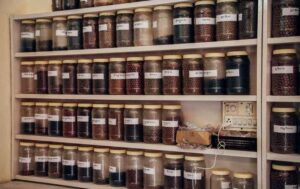 Medical degrees granted by the Sowa Rigpa College and Hospital of the Men-Tsee-Khang (or Tibetan Medical and Astro Institute) are now reognised by the government of Himachal Pradesh (HP) which has agreed to provide a no-objection certificate (NOC). This decision was taken by the HP Government earlier this month and will contribute to the promotion of the traditional Tibetan system of medicine, known as Sowa-Rigpa or Amchi medicine.
Medical degrees granted by the Sowa Rigpa College and Hospital of the Men-Tsee-Khang (or Tibetan Medical and Astro Institute) are now reognised by the government of Himachal Pradesh (HP) which has agreed to provide a no-objection certificate (NOC). This decision was taken by the HP Government earlier this month and will contribute to the promotion of the traditional Tibetan system of medicine, known as Sowa-Rigpa or Amchi medicine.
Men-Tsee-Khang comes under the administration of the Central Tibetan Administration (CTA) and was set up in Dharamshala by His Holiness The Dalai Lama after his arrival in India. The CTA had previously sought permission from the HP government to grant Bachelor of Sowa Rigpa Medicine and Surgery (BSRMS)degrees under the provisions of Indian Medicine Central Council, reports the Hindustan Times, citing the Requirement of Minimum Standards for under-graduate Sowa-Rigpa Colleges and attached Hospitals Regulations, 2017.
The five-year BSRMS programme concludes with a one-year internship before the degree is awarded. Tibetan language, Buddhist philosophy, astrology, and Sowa-Rigpa (Tibetan medicine) are all included in this course.
According to the Namgyal Institute of Tibetology, Yuthog Yonten Gonpo (1126-1202) from Tibet is widely regarded as the main founder of Sowa-Rigpa, mostly based on his composition of the Four Medical Tantras (rGyudbZhi), a four-book treatise on Traditional Tibetan Medicine (Sowa-Rigpa) which forms the main course of study in the Tibetan medical tradition.
The Forty Sixth Report of the Indian Medical Council (amendment) Bill 2010 of the Parliamentary Standing Committee on Health and Family Welfare of the Government of India states that Sowa-Rigpa which means science of healing, is an integral part of Buddhist culture. With a history going back over 2,500 years, it is one of the oldest surviving and well-documented systems of medicine of the world. It is widely practised in Tibet, Mongolia, Bhutan, some parts of China, Nepal, a few parts of the former Soviet Union and in the Himalayan regions of India including Sikkim, Arunachal Pradesh, Darjeeling (West Bengal), Lahoul and Spiti (Himachal Pradesh) and the Ladakh region of Jammu and Kashmir. The committee also noted that most of the theory and practices of Sowa-Rigpa were similar to Ayurveda. The Sowa Rigpa system of medicine is recognised by the Government of India along with other Indian systems of medicine which include Ayurveda,Yoga, Unani, Siddha and also Homeopathy.




 Print
Print Email
Email